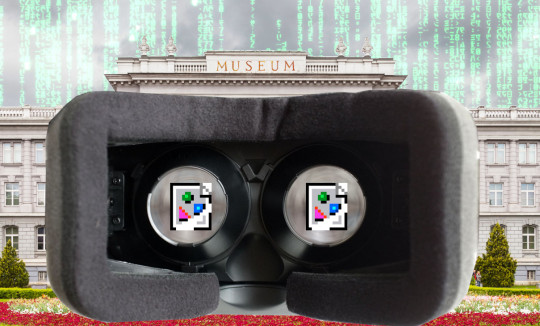#Cultural heritage preservation
Explore tagged Tumblr posts
Text
Black History Is Under Attack: Period.
In today’s America, Black history is under attack. From attempts to rewrite school curricula to banning books that tell the rich and unvarnished stories of our ancestors, it’s clear that the new administration and his lil’ friends are doing everything in their power to erase our rich legacy. But here at Successful Black Parenting Magazine, we refuse to let that happen. Black history is not just a…

View On WordPress
#African American history lessons#African American parent magazine#African American parenting#African American parenting magazine#African American parents#Black excellence education#Black history education tools#Black history in schools#black parent magazine#black parenting#Black parenting magazine#Black parenting resources#black parents#cultural heritage preservation#erasure of Black history#martin luther king#preserving African American heritage#successful black parenting#successful black parenting magazine#teaching Black history at home
0 notes
Text
Pawan Agarwal Elected as New President of Basti Vikas Samiti
Committee to expand soon, focus on addressing issues in various settlements Basti Vikas Samiti elects Pawan Agarwal as new central president, pledges to address community issues and protect cultural heritage. JAMSHEDPUR – Basti Vikas Samiti elects Pawan Agarwal as new central president during a crucial meeting, plans committee expansion. In a significant meeting of the Basti Vikas Samiti, senior…
#जनजीवन#Basti Vikas Samiti#community leadership change#cultural heritage preservation#Jamshedpur community development#Jamshedpur Local Governance#Khemlal Chaudhary#Life#Pawan Agarwal#Ram Babu Tiwari#settlement improvement committee#Social Welfare Initiatives
0 notes
Text
Chiu Chow People Origin: A Journey Through Teochew People 's Storied Past
Examining Chiu chow People Origin, Extensive History, and Traditions The teochew people, sometimes referred to as the chaozhou or chiu chow people, have a rich and centuries-old cultural history. This page explores this unique ethnic group’s beginnings, customs, and worldwide impact, offering insightful information about their extraordinary past and enduring legacy. This thorough book is…

View On WordPress
#chaozhou culture#Chinese diaspora#chiu chow language#chiu chow people origin#cultural heritage preservation#ethnic traditions#Language Services#nanxi opera#Remote Interpreting#teochew history
0 notes
Text

BILD Urheber: AdiJapan
#Roma Activism#Antiziganism Awareness#Education Advocacy#Discrimination Fighting#Community Empowerment#Sinti and Roma Rights#Cultural Heritage Preservation#Hannover Integration#Diversity Acceptance#Empowering Marginalized Communities#State Treaty Advocacy#Youth Empowerment#Prejudice Combat#Inclusivity Promotion#Empowering Future Generations#Sinti und Roma#Antiziganismus#Bildungschancen#Integration#Community#Rassismus#Hannover·#Empowerment#Bildungsarbeit#Vorurteile#Aktionsplan#Engagement#Workshop#Soziale Teilhabe#Roma-Community
1 note
·
View note
Text
Understanding ICWA in Foster Care and Adoption
Understanding ICWA in Foster Care and Adoption. In the realm of child welfare and adoption, the Indian Child Welfare Act (ICWA) plays a pivotal role with profound implications. Enacted in 1978, the ICWA strategically addresses the distressing issue of Native American children enduring unwarranted separations from their families and tribes, owing to the cultural insensitivity inherent in…

View On WordPress
#Active engagement in cultural heritage#Balancing cultural roots#Child welfare and adoption#Community-driven decision-making#Cultural heritage preservation#Empowering tribal authorities#ICWA cultural heritage protection#Indian Child Welfare Act (ICWA)#Language preservation in Native communities#Measurable success of ICWA#Native American communities#Native American cultural identity#Native American traditions
0 notes
Note
My auntie keeps Golden Guernsey goats on our island, like many of our local unique breeds of livestock they nearly went extinct in the starving during ww2 occupation surviving by only one smuggled flock. They're super friendly and energetic and their colouration might be of interest :eyes:
Oh OH these are very pretty




#it's extremely cool and admirable that your aunt is helping to preserve a rare heritage breed of livestock#these goats are gorgeous#wonderful caramel colors#they look highly pettable#answered#anonymous#also this is beside the point but a few years back I was really interested in the history and cultures of the Channel Islands Isle of Man#and the archipelagos of Scotland#I remember thinking that I've never interacted with anyone who lives in any of those places at least to my knowledge#and my chances of coming across someone organically are fairly low so I probably never will#maybe it's weird to say but I just think it's terribly neat that there's at least one Channel Islander in existence who has seen my art
396 notes
·
View notes
Text
The (open) web is good, actually

I'll be at the Studio City branch of the LA Public Library tonight (Monday, November 13) at 1830hPT to launch my new novel, The Lost Cause. There'll be a reading, a talk, a surprise guest (!!) and a signing, with books on sale. Tell your friends! Come on down!

The great irony of the platformization of the internet is that platforms are intermediaries, and the original promise of the internet that got so many of us excited about it was disintermediation – getting rid of the middlemen that act as gatekeepers between community members, creators and audiences, buyers and sellers, etc.
The platformized internet is ripe for rent seeking: where the platform captures an ever-larger share of the value generated by its users, making the service worst for both, while lock-in stops people from looking elsewhere. Every sector of the modern economy is less competitive, thanks to monopolistic tactics like mergers and acquisitions and predatory pricing. But with tech, the options for making things worse are infinitely divisible, thanks to the flexibility of digital systems, which means that product managers can keep subdividing the Jenga blocks they pulling out of the services we rely on. Combine platforms with monopolies with digital flexibility and you get enshittification:
https://pluralistic.net/2023/01/21/potemkin-ai/#hey-guys
An enshittified, platformized internet is bad for lots of reasons – it concentrates decisions about who may speak and what may be said into just a few hands; it creates a rich-get-richer dynamic that creates a new oligarchy, with all the corruption and instability that comes with elite capture; it makes life materially worse for workers, users, and communities.
But there are many other ways in which the enshitternet is worse than the old good internet. Today, I want to talk about how the enshitternet affects openness and all that entails. An open internet is one whose workings are transparent (think of "open source"), but it's also an internet founded on access – the ability to know what has gone before, to recall what has been said, and to revisit the context in which it was said.
At last week's Museum Computer Network conference, Aaron Straup Cope gave a talk on museums and technology called "Wishful Thinking – A critical discussion of 'extended reality' technologies in the cultural heritage sector" that beautifully addressed these questions of recall and revisiting:
https://www.aaronland.info/weblog/2023/11/11/therapy/#wishful
Cope is a museums technologist who's worked on lots of critical digital projects over the years, and in this talk, he addresses himself to the difference between the excitement of the galleries, libraries, archives and museums (GLAM) sector over the possibilities of the web, and why he doesn't feel the same excitement over the metaverse, and its various guises – XR, VR, MR and AR.
The biggest reason to be excited about the web was – and is – the openness of disintermediation. The internet was inspired by the end-to-end principle, the idea that the network's first duty was to transmit data from willing senders to willing receivers, as efficiently and reliably as possible. That principle made it possible for whole swathes of people to connect with one another. As Cope writes, openness "was not, and has never been, a guarantee of a receptive audience or even any audience at all." But because it was "easy and cheap enough to put something on the web," you could "leave it there long enough for others to find it."
That dynamic nurtured an environment where people could have "time to warm up to ideas." This is in sharp contrast to the social media world, where "[anything] not immediately successful or viral … was a waste of time and effort… not worth doing." The social media bias towards a river of content that can't be easily reversed is one in which the only ideas that get to spread are those the algorithm boosts.
This is an important way to understand the role of algorithms in the context of the spread of ideas – that without recall or revisiting, we just don't see stuff, including stuff that might challenge our thinking and change our minds. This is a much more materialistic and grounded way to talk about algorithms and ideas than the idea that Big Data and AI make algorithms so persuasive that they can control our minds:
https://pluralistic.net/2023/11/06/attention-rents/#consumer-welfare-queens
As bad as this is in the social media context, it's even worse in the context of apps, which can't be linked into, bookmarked, or archived. All of this made apps an ominous sign right from the beginning:
https://memex.craphound.com/2010/04/01/why-i-wont-buy-an-ipad-and-think-you-shouldnt-either/
Apps interact with law in precisely the way that web-pages don't. "An app is just a web-page wrapped in enough IP to make it a crime to defend yourself against corporate predation":
https://pluralistic.net/2023/08/27/an-audacious-plan-to-halt-the-internets-enshittification-and-throw-it-into-reverse/
Apps are "closed" in every sense. You can't see what's on an app without installing the app and "agreeing" to its terms of service. You can't reverse-engineer an app (to add a privacy blocker, or to change how it presents information) without risking criminal and civil liability. You can't bookmark anything the app won't let you bookmark, and you can't preserve anything the app won't let you preserve.
Despite being built on the same underlying open frameworks – HTTP, HTML, etc – as the web, apps have the opposite technological viewpoint to the web. Apps' technopolitics are at war with the web's technopolitics. The web is built around recall – the ability to see things, go back to things, save things. The web has the technopolitics of a museum:
https://www.aaronland.info/weblog/2014/09/11/brand/#dconstruct
By comparison, apps have the politics of a product, and most often, that product is a rent-seeking, lock-in-hunting product that wants to take you hostage by holding something you love hostage – your data, perhaps, or your friends:
https://www.eff.org/deeplinks/2021/08/facebooks-secret-war-switching-costs
When Anil Dash described "The Web We Lost" in 2012, he was describing a web with the technopolitics of a museum:
where tagging was combined with permissive licenses to make it easy for people to find and reuse each others' stuff;
where it was easy to find out who linked to you in realtime even though most of us were posting to our own sites, which they controlled;
where a link from one site to another meant one person found another person's contribution worthy;
where privacy-invasive bids to capture the web were greeted with outright hostility;
where every service that helped you post things that mattered to you was expected to make it easy for you take that data back if you changed services;
where inlining or referencing material from someone else's site meant following a technical standard, not inking a business-development deal;
https://www.anildash.com/2012/12/13/the_web_we_lost/
Ten years later, Dash's "broken tech/content culture cycle" described the web we live on now:
https://www.anildash.com/2022/02/09/the-stupid-tech-content-culture-cycle/
found your platform by promising to facilitate your users' growth;
order your technologists and designers to prioritize growth above all other factors and fire anyone who doesn't deliver;
grow without regard to the norms of your platform's users;
plaster over the growth-driven influx of abusive and vile material by assigning it to your "most marginalized, least resourced team";
deliver a half-assed moderation scheme that drives good users off the service and leaves no one behind but griefers, edgelords and trolls;
steadfastly refuse to contemplate why the marginalized users who made your platform attractive before being chased away have all left;
flail about in a panic over illegal content, do deals with large media brands, seize control over your most popular users' output;
"surface great content" by algorithmically promoting things that look like whatever's successful, guaranteeing that nothing new will take hold;
overpay your top performers for exclusivity deals, utterly neglect any pipeline for nurturing new performers;
abuse your creators the same ways that big media companies have for decades, but insist that it's different because you're a tech company;
ignore workers who warn that your product is a danger to society, dismiss them as "millennials" (defined as "anyone born after 1970 or who has a student loan")
when your platform is (inevitably) implicated in a murder, have a "town hall" overseen by a crisis communications firm;
pay the creator who inspired the murder to go exclusive on your platform;
dismiss the murder and fascist rhetoric as "growing pains";
when truly ghastly stuff happens on your platform, give your Trust and Safety team a 5% budget increase;
chase growth based on "emotionally engaging content" without specifying whether the emotions should be positive;
respond to ex-employees' call-outs with transient feelings of guilt followed by dismissals of "cancel culture":
fund your platforms' most toxic users and call it "free speech";
whenever anyone disagrees with any of your decisions, dismiss them as being "anti-free speech";
start increasing how much your platform takes out of your creators' paychecks;
force out internal dissenters, dismiss external critics as being in conspiracy with your corporate rivals;
once regulation becomes inevitable, form a cartel with the other large firms in your sector and insist that the problem is a "bad algorithm";
"claim full victim status," and quit your job, complaining about the toll that running a big platform took on your mental wellbeing.
https://pluralistic.net/2022/02/18/broken-records/#dashes
The web wasn't inevitable – indeed, it was wildly improbable. Tim Berners Lee's decision to make a new platform that was patent-free, open and transparent was a complete opposite approach to the strategy of the media companies of the day. They were building walled gardens and silos – the dialup equivalent to apps – organized as "branded communities." The way I experienced it, the web succeeded because it was so antithetical to the dominant vision for the future of the internet that the big companies couldn't even be bothered to try to kill it until it was too late.
Companies have been trying to correct that mistake ever since. After three or four attempts to replace the web with various garbage systems all called "MSN," Microsoft moved on to trying to lock the internet inside a proprietary browser. Years later, Facebook had far more success in an attempt to kill HTML with React. And of course, apps have gobbled up so much of the old, good internet.
Which brings us to Cope's views on museums and the metaverse. There's nothing intrinsically proprietary about virtual worlds and all their permutations. VRML is a quarter of a century old – just five years younger than Snow Crash:
https://en.wikipedia.org/wiki/VRML
But the current enthusiasm for virtual worlds isn't merely a function of the interesting, cool and fun experiences you can have in them. Rather, it's a bid to kill off whatever is left of the old, good web and put everything inside a walled garden. Facebook's metaverse "is more of the same but with a technical footprint so expensive and so demanding that it all but ensures it will only be within the means of a very few companies to operate."
Facebook's VR headsets have forward-facing cameras, turning every users into a walking surveillance camera. Facebook put those cameras there for "pass through" – so they can paint the screens inside the headset with the scene around you – but "who here believes that Facebook doesn't have other motives for enabling an always-on camera capturing the world around you?"
Apple's VisionPro VR headset is "a near-perfect surveillance device," and "the only thing to save this device is the trust that Apple has marketed its brand on over the last few years." Cope notes that "a brand promise is about as fleeting a guarantee as you can get." I'll go further: Apple is already a surveillance company:
https://pluralistic.net/2022/11/14/luxury-surveillance/#liar-liar
The technopolitics of the metaverse are the opposite of the technopolitics of the museum – even moreso than apps. Museums that shift their scarce technology budgets to virtual worlds stand a good chance of making something no one wants to use, and that's the best case scenario. The worst case is that museums make a successful project inside a walled garden, one where recall is subject to corporate whim, and help lure their patrons away from the recall-friendly internet to the captured, intermediated metaverse.
It's true that the early web benefited from a lot of hype, just as the metaverse is enjoying today. But the similarity ends there: the metaverse is designed for enclosure, the web for openness. Recall is a historical force for "the right to assembly… access to basic literacy… a public library." The web was "an unexpected gift with the ability to change the order of things; a gift that merits being protected, preserved and promoted both internally and externally." Museums were right to jump on the web bandwagon, because of its technopolitics. The metaverse, with its very different technopolitics, is hostile to the very idea of museums.
In joining forces with metaverse companies, museums strike a Faustian bargain, "because we believe that these places are where our audiences have gone."
The GLAM sector is devoted to access, to recall, and to revisiting. Unlike the self-style free speech warriors whom Dash calls out for self-serving neglect of their communities, the GLAM sector is about preservation and access, the true heart of free expression. When a handful of giant companies organize all our discourse, the ability to be heard is contingent on pleasing the ever-shifting tastes of the algorithm. This is the problem with the idea that "freedom of speech isn't freedom of reach" – if a platform won't let people who want to hear from you see what you have to say, they are indeed compromising freedom of speech:
https://pluralistic.net/2022/12/10/e2e/#the-censors-pen
Likewise, "censorship" is not limited to "things that governments do." As Ada Palmer so wonderfully describes it in her brilliant "Why We Censor: from the Inquisition to the Internet" speech, censorship is like arsenic, with trace elements of it all around us:
https://www.youtube.com/watch?v=uMMJb3AxA0s
A community's decision to ban certain offensive conduct or words on pain of expulsion or sanction is censorship – but not to the same degree that, say, a government ban on expressing certain points of view is. However, there are many kinds of private censorship that rise to the same level as state censorship in their impact on public discourse (think of Moms For Liberty and their book-bannings).
It's not a coincidence that Palmer – a historian – would have views on censorship and free speech that intersect with Cope, a museum worker. One of the most brilliant moments in Palmer's speech is where she describes how censorship under the Inquistion was not state censorship – the Inquisition was a multinational, nongovernmental body that was often in conflict with state power.
Not all intermediaries are bad for speech or access. The "disintermediation" that excited early web boosters was about escaping from otherwise inescapable middlemen – the people who figured out how to control and charge for the things we did with one another.
When I was a kid, I loved the writing of Crad Kilodney, a short story writer who sold his own self-published books on Toronto street-corners while wearing a sign that said "VERY FAMOUS CANADIAN AUTHOR, BUY MY BOOKS" (he also had a sign that read, simply, "MARGARET ATWOOD"). Kilodney was a force of nature, who wrote, edited, typeset, printed, bound, and sold his own books:
https://www.theglobeandmail.com/arts/books/article-late-street-poet-and-publishing-scourge-crad-kilodney-left-behind-a/
But there are plenty of writers out there that I want to hear from who lack the skill or the will to do all of that. Editors, publishers, distributors, booksellers – all the intermediaries who sit between a writer and their readers – are not bad. They're good, actually. The problem isn't intermediation – it's capture.
For generations, hucksters have conned would-be writers by telling them that publishing won't buy their books because "the gatekeepers" lack the discernment to publish "quality" work. Friends of mine in publishing laughed at the idea that they would deliberately sideline a book they could figure out how to sell – that's just not how it worked.
But today, monopolized film studios are literally annihilating beloved, high-priced, commercially viable works because they are worth slightly more as tax writeoffs than they are as movies:
https://deadline.com/2023/11/coyote-vs-acme-shelved-warner-bros-discovery-writeoff-david-zaslav-1235598676/
There's four giant studios and five giant publishers. Maybe "five" is the magic number and publishing isn't concentrated enough to drop whole novels down the memory hole for a tax deduction, but even so, publishing is trying like hell to shrink to four:
https://pluralistic.net/2022/11/07/random-penguins/#if-you-wanted-to-get-there-i-wouldnt-start-from-here
Even as the entertainment sector is working to both literally and figuratively destroy our libraries, the cultural heritage sector is grappling with preserving these libraries, with shrinking budgets and increased legal threats:
https://blog.archive.org/2023/03/25/the-fight-continues/
I keep meeting artists of all description who have been conditioned to be suspicious of anything with the word "open" in its name. One colleague has repeatedly told me that fighting for the "open internet" is a self-defeating rhetorical move that will scare off artists who hear "open" and think "Big Tech ripoff."
But "openness" is a necessary precondition for preservation and access, which are the necessary preconditions for recall and revisiting. Here on the last, melting fragment of the open internet, as tech- and entertainment-barons are seizing control over our attention and charging rent on our ability to talk and think together, openness is our best hope of a new, good internet. T
he cultural heritage sector wants to save our creative works. The entertainment and tech industry want to delete them and take a tax writeoff.
As a working artist, I know which side I'm on.

If you'd like an essay-formatted version of this post to read or share, here's a link to it on pluralistic.net, my surveillance-free, ad-free, tracker-free blog:
https://pluralistic.net/2023/11/13/this-is-for-everyone/#revisiting

Image: Diego Delso (modified) https://commons.wikimedia.org/wiki/File:Museo_Mimara,_Zagreb,_Croacia,_2014-04-20,_DD_01.JPG
CC BY-SA 4.0 https://creativecommons.org/licenses/by-sa/4.0/
#pluralistic#ar#xr#vr#augmented reality#extended reality#virtual reality#museums#cultural preservation#aaron cope#Museum Computer Network#cultural heritage#glam#access#open access#revisiting#mr#mixed reality#asynchronous#this is for everyone#freedom of reach#gatekeepers#metaverse#technofeudalism#privacy#brick on the face#rent-seeking
188 notes
·
View notes
Text
"Inazuma is poorly written" meaning the worldbuilding's great but the plot needs a rewrite. "Natlan is poorly written" meaning the worldbuilding needs a redesign but the plot is great.
#Inazuma needs a rewrite of exerything in the archon quest EXCEPT Kazuha's arc with the 2 visions.#Inazuma's map worldbuilding and culture are all great#Natlan needs a complete revamp of the 6 tribes and the Stadium#because everything feels like it was designed for tourists instead of the people who live there#make the cultural references better. less modern clothes#that means change most of the character designs#I would also change most of the character's gameplay and replace their transportation with something less modern#Kinich gets a pass because tech is a dendro motif and his transport method is just Ajaw but everyone else needs to change#Mavuika especially#also more melanin obviously#but the actual plot has been stellar so far#the issue of having to fight not only for your people's lives but also to preserve their history and heritage (like under colonialism)#that was great#and in general Natlan was much better than Inazuma at portraying the horrors of war#genshin impact#genshin#原神#natlan#inazuma#mavuika#raiden shogun#raiden ei#genshin archon quest#genshin inazuma#genshin natlan
46 notes
·
View notes
Text
There are 2,900 languages that are endangered. This means they have fewer than 10,000 speakers, and most of them are not being passed on to younger generations.
What Causes Language Extinction?
1. Colonization and oppression
2. Globalization and urbanization
3. Education and media
4. Attitudes and prestige
Why Does Language Extinction Matter?
1. Cultural heritage
2. Scientific knowledge
3. Linguistic diversity
How Can We Save Endangered Languages?
1. Documentation and revitalization
2. Policy and legislation
3. Awareness and advocacy
Places ranked by Endangered Languages
1. Africa with 619 languages
2. Asia with 613 languages
3. South America with 448 languages
4. North America with 182 languages
5. Pacific with 592 languages
6. Europe with 238 languages
7. Australia with 108 languages
#language#cultural heritage#endangered languages#historic preservation#anthropology#linguistics#asian#south america#african#language learning#native language
132 notes
·
View notes
Text








—
Charles Lewis Tiffany (February 15, 1812 – February 18, 1902) was an American businessman and jeweler who founded New York City's Tiffany & Co. in 1837.
Known for his jewelry expertise, Tiffany created the country's first retail catalog and introduced the English standard of sterling silver in imported jewelry in 1851.
Louis Comfort Tiffany (February 18, 1848 – January 17, 1933) was an American artist and designer who worked in the decorative arts and is best known for his work in stained glass.
He is associated with the art nouveau and aesthetic art movements.
#Danner Memorial Window#Tiffany Studios#Tiffany window#stained glass#stained glass window#Sotheby's#Louis Comfort Tiffany#Charles Lewis Tiffany#Agnes Northrop#auction#John and Terressa Danner#Alan Gerry#Garden Landscape#masterpiece#cultural preservation#American heritage#decorative arts
6 notes
·
View notes
Text

- P A C H A M A M A -
#peru#travel#vacation#machupicchu#holiday#trekking#nature#jungle#peruvian#pachamama#green#forest#architecture#ancient history#inca#culture#heritage#wild#backpacking#traveller#ruins#preservation#wildlife#universe#beauty#wonder#mountains#andes mountains#andes#adventure
10 notes
·
View notes
Text
Tagore Society Honors Kazi Nazrul Islam's Legacy
125th birth anniversary celebration features performances of rebel poet’s works Jamshedpur’s cultural scene comes alive with Nazrul Sandhya event, showcasing the enduring impact of the renowned Bengali poet and composer. JAMSHEDPUR – The Tagore Society commemorated the 125th birth anniversary of Kazi Nazrul Islam with a vibrant "Nazrul Sandhya" program at Rabindra Bhawan. "Nazrul’s rebellious…

View On WordPress
#जनजीवन#Bengali cultural events#Bengali literature promotion#cultural heritage preservation#Jamshedpur music performances#Kazi Nazrul Islam anniversary#Life#Nazrul Geeti showcase#Nazrul Sandhya celebration#Rabindra Bhawan events#rebel poet tribute#Tagore Society Jamshedpur
0 notes
Text
Online English to Yiddish Translator: Accurately Translate English to Yiddish
The World of Yiddish Language: How to accurately translate English to Yiddish In a world where languages serve as a tapestry, weaving together diverse cultures and communities, the art of translation stands as a vital thread, connecting people across linguistic barriers. Yiddish holds a unique place, carrying within its words the history, traditions, and resilience of a remarkable people. In…

View On WordPress
#cultural heritage preservation#English to Yiddish translation#LanguageXS#translation challenges#Yiddish language#Yiddish-speaking community
1 note
·
View note
Text
Warriors for a Brighter Future: Eva and Estera's Fight Against Prejudice
Eva, a young woman with strong determination, had experienced a similar journey to Estera Stan. She too came from a Sinti and Roma family that had moved to Hannover in search of better opportunities and a brighter tomorrow. Her parents took the first step, and when Eva was six years old, the rest of the family followed.
It was a leap into an uncertain future, but Eva's parents had a dream: education and better opportunities for their children. Estera could empathize with this situation, as she too remembered the time when her family gathered the courage to seek a new home.
As time went on, Eva grew, shaped by the challenges but also the opportunities that the city of Hannover offered. She spoke Romanes with her family to maintain the connection to her culture and roots. Yet, there were moments when she felt uncomfortable. The "Z-word" at school was a constant companion, a painful reminder that not everyone accepted the diversity of the community.
Eva decided to make a change. She became active in organizations advocating for education and fighting against discrimination. Through workshops, she battled against prejudices and ensured that teachers and students better understood what Antiziganism meant.
The numbers confirmed what Eva experienced. More and more cases of racism against Sinti and Roma were being reported. But Eva didn't give up. She fought for a better future, for herself and for the community.
The path was not easy. Often, it felt like she was tilting at windmills. Yet, she knew she was not alone. In Hannover, there was a strong Sinti and Roma community standing together for their rights.
The Senate supported projects that promoted participation and anti-discrimination. It was a start, but Eva dreamed of more. She dreamed of a state treaty that would firmly anchor the rights of the community.
One day, while Eva was diligently working in one of the workshops organized by "Romatrial," she spoke with Estera about their dreams and challenges. Estera, with a smile on her face, said, "Eva, you truly are an inspiration. I admire how you advocate for our community."
Eva responded with a warm smile, "Thank you, Estera. It's important that we stick together and fight for our rights. Together, we can achieve a lot."
A few weeks later, at a meeting of "Romaniphen," Eva heard a young Roma student share her experiences at school. The student, with a touch of determination in her voice, said, "It's hard to feel strong sometimes when you feel misunderstood. But through workshops like these, I feel empowered to stand up for myself."
Eva nodded in agreement and said, "You are not alone. We are here to support you. Together, we can make a difference."
As the discussion turned to the rising cases of Antiziganism, Eva became serious. She said, "It's regrettable to see the numbers increase. But that also means we need to do more to educate and fight."
Estera, sitting beside her, added, "We need to raise our voices and stand against prejudices. It's time for our community to be heard."
In the following months, Eva and Estera continued their efforts, inspired by the stories and experiences of their fellow fighters. They knew the road was still long, but they firmly believed that together, they could create a better future.
Eva knew the road was still long. But she believed in change. She believed that, together with others, she could make a difference. And so, she continued her fight, inspired by Estera and all those who believed in a better future.
#Roma Activism#Antiziganism Awareness#Education Advocacy#Discrimination Fighting#Community Empowerment#Sinti and Roma Rights#Cultural Heritage Preservation#Hannover Integration#Diversity Acceptance#Empowering Marginalized Communities#State Treaty Advocacy#Youth Empowerment#Prejudice Combat#Inclusivity Promotion#Empowering Future Generations
1 note
·
View note
Text
“Books permit us to voyage through time, to tap the wisdom of our ancestors. The library connects us with the insight and knowledge, painfully extracted from Nature, of the greatest minds that ever were, with the best teachers, drawn from the entire planet and from all our history, to instruct us without tiring, and to inspire us to make our own contribution to the collective knowledge of the human species. I think the health of our civilization, the depth of our awareness about the underpinnings of our culture and our concern for the future can all be tested by how well we support our libraries.” ― Carl Sagan, Cosmos
#carl sagan#humanity#humans#reading#atypicalreads#quotes#science#libraries#collective knowledge#books#time travel#wisdom of ancestors#cultural heritage#education#inspiration#learning#civilization#awareness#future generations#knowledge preservation#history#nature#greatest minds#collective progress#intellectual growth#societal health#cosmos#enlightenment#teachers#connection
4 notes
·
View notes
Text

And when the visitors finally come, you need to figure out how to make them stop.
Painting: French Master - Allegory of the Vanity of Earthly Things. Wikimedia Commons.
___ Follow for more memes from the GLAM world 🖼📙🗄🏛
GLAM - 🖼Galleries📙Libraries🗄Archives🏛Museums . . .
#conservation#careofcollections#museums#preservation#conservators#preserve#heritage#culture#glam#galleries#libraries#archives#museumstaff#meme#conserve#collections#materials#museummeme#memedaily#musicals#notouchy#collectionscare#artconservation#art#objects#culturalheritage#museumlovers
35 notes
·
View notes